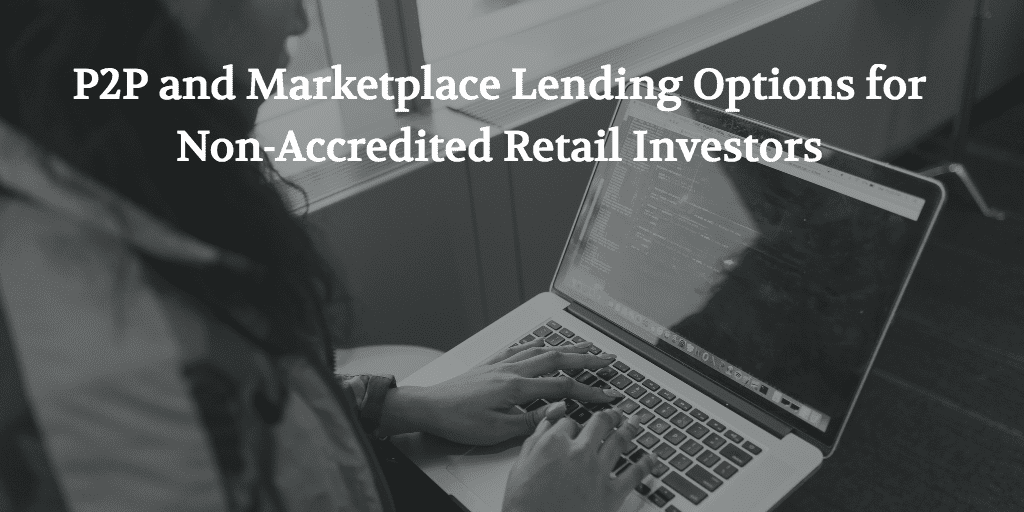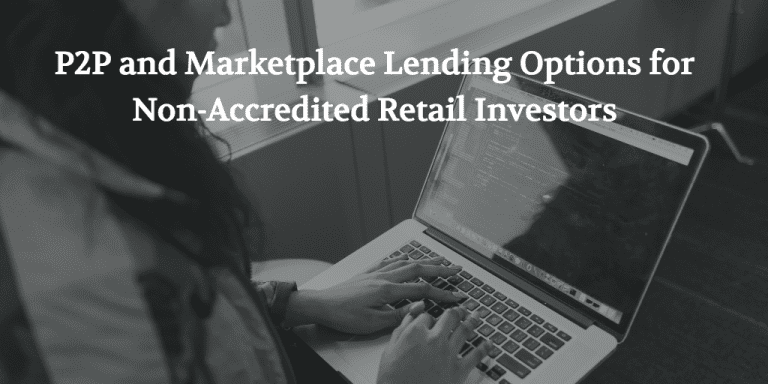
For online platforms there is considerable cost to be able to accept retail dollars. This is one of the reasons that Lending Club and Prosper were the only two platforms that allowed for retail investor participation for many years. Since many firms are just a few years old it’s much easier to target accredited individual and institutional investors due to the capital those investors have to deploy. However, there are now online lending platforms spanning almost every lending vertical that are open to retail investors. Below we share all of the opportunities retail investors should be aware of.
Lending Club – Consumer Lending
Lending Club allows retail investors access to consumer loans and has the most loan volume out of any other platform on this list. Investors can purchase fractions of loans starting at $25 and so can build a diversified portfolio with a relatively small investment. Borrowers are given loan grades from A-G and investors can decide which grades they would like to invest in. Lending Club advertises historical returns between 5%-7% with 99% of investors with over 100 loans achieving positive returns. In addition to the primary market, investors can buy and sell loans on Lending Club’s secondary market FOLIOfn which provides liquidity to investors.
Lending Club’s state and financial suitability conditions can be found on their website.
Prosper – Consumer Lending
Prosper’s platform is similar to Lending Club’s. Investors can purchase consumer loans ranging from grades AA-HR. One difference is that Prosper shut down their secondary market recently which means investors must hold notes to their maturity once purchased. Estimated returns vary from 3.83% to 13.04%
There are additional suitability standards for certain states which are outlined on Prosper’s website.
Fundrise – Real Estate Lending
Fundrise initially started out as a real estate crowdfunding platform where investors were able to choose individual properties to invest in. This is the model that many platforms still are currently using but in December, 2015 the company pivoted the business model to what they call eREITs. They are operating under Regulation A+ in Title IV of the JOBS Act which allows for them to raise up to $50 million in a fund structure. This is a more passive structure where investors invest a minimum of $1,000 and the money is pooled and allocated to various commercial real estate deals.
The company initially launched with an income eREIT and a subsequent growth eREIT, both of which have sold out. The deals currently open for investment span different geographies including West Coast, Heartland and East Coast eREITs.
RealtyMogul.com – Real Estate Lending
RealtyMogul.com now has a hybrid approach after recently launching their own REIT. Historically accredited investors were able to allocate funds to specific real estate deals but the new REIT opened access to 50,000 non-accredited investors (under Regulation A+) who had expressed interest in RealtyMogul.com. The new REIT is called MogulREIT I and invests in commercial real estate deals in both debt and equity. Investors can invest a minimum of $1,000. They have allocated to 5 properties so far and the last monthly distribution rate of return was 8% when annualized.
GROUNDFLOOR – Real Estate Lending
GROUNDFLOOR’s offering is unique although it still operates under Regulation A+. However it is not a REIT. The company focuses on the fix & flip market instead of the larger deals that the above REITs invest in. Investors from the following states can invest as little as $10 into an individual deal: MA, MD, DC, VA, GA, IL, TX, WA, and CA. The company is still relatively small, but originated $16.5 million in 2016 with an average investor return of 14.16%. They remain dedicated to the retail investor community and recently provided a company progress report on their blog.
StreetShares – Small Business Lending
StreetShares offers small business loans with a majority of them being to veteran owned businesses. A good portion of the lending capital is also provided by veterans. This affinity lending approach plays into a borrower’s willingness to pay back their loan. Accredited individuals and institutions are able to invest directly in small business loans originated by the platform but for non-accredited investors they offer Veteran Business Bonds under Regulation A+. Investors can invest from $25 – $50,000 in the bonds which pay a fixed rate of 5%. Additional interest paid beyond the 5% paid to investors is set aside to cover any loan losses similar to a provision fund. The company also recently partnered with Nor-Cal FDC for government contract financing. Those deals are also included in the offering.
Conclusion
While the number of options for retail investors pales in comparison to the opportunities for accredited investors, it’s been great to watch companies create new offerings over the last few years. These companies realize the important role that retail investors play as an additional source of capital. Even within the same Regulation A+ structure they have created unique models and it will be interesting to watch the traction over the coming years.


